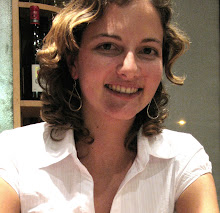
Wow, I seem to have fallen rather behind here. I blame this on Guinea, on the fact that the only internet access in Kankan is infuriatingly slow, and on my own personal laziness. So in the name of efficiency, let's just skip the rest of Cote d'Ivoire (there wasn't much) and move on.
As most of you know, one major goal of this trip was to return to Guinea, to see some of my former students and to visit my various families there. I knew I would be arriving in the middle of the hot season, and in Haute Guinea the hot season is not something to be taken lightly. I have memories of sweltering nights that force you to sleep out on the porch, and of fitful naps snatched between the buzzing of mosquitoes and the morning prayer call. I remember wrapping myself in a wet pagne to keep cool, sweating during showers and counting to days until the rains would finally come to take the sharp edge off of the heat. In my personal mythology of life in Guinea, the hot season was hell.
But what struck me on the bumpy ride between N'Zerekore and Kankan was that the hot season is many other things as well. It is the season of ripe mangoes, of small children with sticky, fruity fingers and roadside tables piled with bright orange pyramids. It is the season of baobab fruit and creamy red cashew fruit, which market women insist cannot be eaten with milk (no one is quite willing to believe them, nor is anyone prepared to try it). It is beach season, when the women and children of Kankan descend on what's left of the Milo river to scrub clothes, bathe, play in the water and exchange gossip, while men in pirogues load their boats with sand and slowly punt their way upstream. They are headed to the brickery; with the sun hot enough to bake the ground solid, it is also brick-making season. This is the only season for swimming, because, as the locals will tell you, all the crocodiles spontaneously disappear when the water gets this low. We think about it a little, contemplate how nice it feels to be wet, and decide there may be logic there after all.
The hot season is also the end of the dry season, and the dust is at its dustiest. It coats the wide teak leaves by the side of the road, hovers in a cloud for a full 5 minutes behind each passing vehicle and leaves brown sweaty streaks on your skin. It gets into your eyes, gets into your hair and grits between your teeth, and whenever a gust of wind whips by there is nothing you can do but cover your face.
And so, dirty and reveling in seasonal fruit, I made my triumphant return to Kankan, to Sanguiana and to the life of a Peace Corps volunteer. The PCVs in the area were not hard to find -- a new group had just arrived and was swarming around Kankan's only respectable hotel -- and I was soon updated on what had changed in the program and what had not. To complete the time warp, I even got the chance to attend a Peace Corps party in the true Haute tradition, and for anyone out there who knows what I'm talking about, the newbies do not disappoint.
My host family in Kankan was glad to see me, but didn't seem particularly surprised. "Where have you been?" they asked, then went back to cutting up fish. The reaction in Sanguiana was more enthusiastic. People came running out of their huts to meet me, food was proffered from every direction and more people seemed to remember my name than ever knew it to begin with. I spent the night in my old hut, newly-thatched, and marveled at how little had really changed.
(A political side-note: Guinean villages may seem like peaceful places, but Sanguiana has an activist side I never would have given it credit for. During the elections last year, the Prefet in Kourousa came to the village and announced that no one without an identity card would be allowed to vote. In rural Guinea, this includes most people -- many have never even been to Kouroussa, let alone to a regional capital where an ID card could be purchased. Moreover, Haute Guinea is a traditional stronghold of the opposition, and no one was under any illusions as to why they were being cut out of the electoral process.
So the villagers burned down the Sous-prefet's hut, ransacked his house and stole everything inside. Shots were fired and three people were injured, at which point everyone gave up and went home. I can't believe that anyone voted at all. Now the Sous-prefet, who has since moved his family back to Kouroussa, lives in a house right behind the ruined shell of the old Sous-prefecture. The incident doesn't seem to have tarnished his political career, though, and no one I talked to had anything bad to say about him.)
Ca c'est la Guinea!

No comments:
Post a Comment